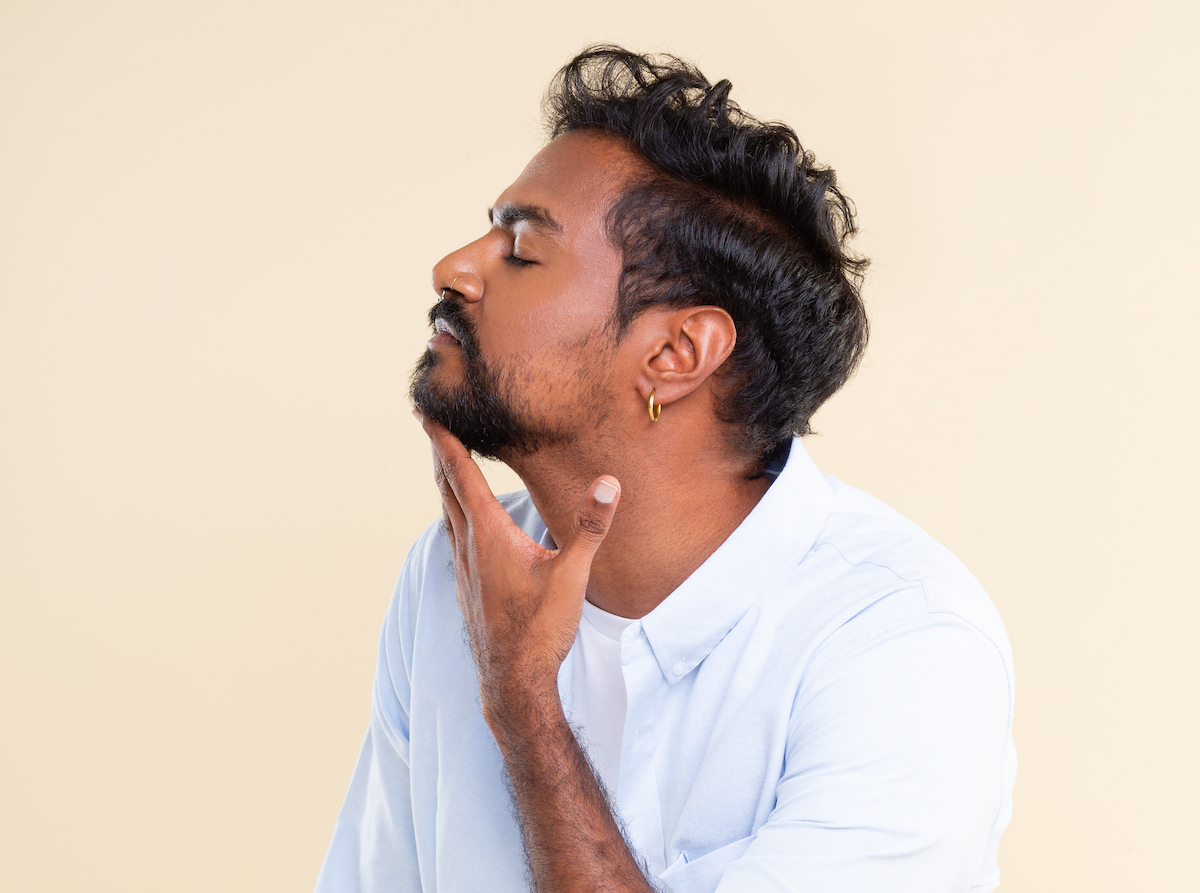We develop fine lines, dark spots, and wrinkles as we age and from sun exposure. But there are specific ingredients used in skincare products that can treat those concerns.
This article details the benefits, differences and uses of two ingredients — retinol and tretinoin.
What is retinol?
Retinol is a natural derivative of Vitamin A, some specialists refer to it as Vitamin A1. It was the first approved vitamin with anti-aging and rejuvenating properties.
Although retinol has been available for decades, its extensive skin benefits have only recently gained recognition.
Retinol comes in various forms like gels, serums, and creams. OTC retinol – which is available in 2% strength dosage – helps treat mild skin concerns.
How does retinol work?
With the gradual decrease of collagen production as we age, wrinkles, fine lines, and blemishes become more visible.
Retinol penetrates beneath the epidermis towards the dermis to neutralise the free radicals and to boost the production of elastin and collagen. This helps create a plumping effect which minimises the appearance of fine lines and wrinkles.
As a result, many dermatologists suggest retinol as a first-line treatment for skin-ageing concerns.
Uses of retinol
Here’s how retinol helps:
- Treats acne
Retinol unblocks skin pores, which can later develop into pimples. A study from 2019 suggests that retinol can treat problems like acne and blackheads with minimal side effects. Doctors usually use prescription retinoid in addition to other medications to treat inflammation and bacteria on the acne spots.
- Effective in rejuvenating skin
Aging, pollution and sun exposure can reduce the skin’s elasticity which can lead to fine lines and wrinkles. Retinol creams are known to reduce these effects.
- Protects against collagen degradation
It can also increase the production of collagen, which may improve the epidermal cells and overall appearance of the skin.
- Smoothen skin surface
Retinol is also known for its exfoliating properties as it can brighten and improve the skin. Studies show that 3% Retinol can help reduce pigmentation.
- Treatment for Follicular Keratosis
‘Chicken skin’ is a common skin condition where the skin appears dry and rough. Certain studies indicate that usage of retinol is helpful in improving the appearance of skin with this condition.
What is tretinoin?
Just like retinol, tretinoin is also a retinoid made from synthesised vitamin A. It’s also called retinoic acid.
In addition to gels, creams and lotions, it comes in an oral medication form, known as isotretinoin.
Dermatologists use tretinoin to treat acne and dark spot concerns like melasma, sunburns, and hyperpigmentation. Unlike retinol, tretinoin is a prescription product and has to be used under the supervision of a medical professional.
How does tretinoin work?
This synthetic vitamin derivative enhances cell turnover rate to create new epidermal cells over old ones.Tretinoin acts upon the cells of the facial epidermis, and increases the cell turnover rate. Studies show a noticeable reduction in acne after the usage of tretinoin.
The initial use of tretinoin includes a ‘tretinoin purge’ which essentially means an increase in acne breakouts. But it does get better with continued use as per the doctor’s prescription.
Tretinoin works very quickly and effectively. A study shows that using prescribed amounts of tretinoin results in noticeably less acne.
Uses of tretinoin cream
Here’s how tretinoin helps:
- Treating acne
Tretinoin has been used to treat acne by dermatologists for 50 years. It’s also a preventive solution for acne issues like pimples, pustules, blackheads, etc.
- Brightens and improves skin texture
Tretinoin can improve your skin texture and reduce the appearance of wrinkles and fine lines. Studies show that with consistent use (for approximately 24 weeks), the skin appears brighter and radiant.
- Treats hyperpigmentation
Various studies show that using tretinoin for an extended period reduces melanin concentration in the skin. It’s why it’s considered one of the treatment options for hyperpigmentation, skin scarring, melasma, age spots, and photoaging (premature aging due to exposure to the sun).
Related article: “How to get tretinoin cream in Malaysia?”
Retinol vs tretinoin
Retinol mainly helps boost collagen production, while tretinoin acts directly on cells and increases cell division.
Tretinoin is more potent and is prescribed to patients with more severe skin concerns for faster results. It’s also considered to be 20x times stronger than OTC retinol.
Due to this reason, retinol is available as an OTC retinoid, and tretinoin is available on prescription. It is also important to note that tretinoin is the only FDA-approved retinoid for the treatment of photoaging.
Can you take tretinoin and retinol together?
It’s recommended to consult your doctor to get a suitable prescription. They may recommend using both at specific intervals, according to symptoms.
Sometimes tretinoin is used as the initial treatment. But as the facial condition improves, the doctor reduces the concentration and shifts to retinol.
Consult a doctor to build a personalised treatment plan.
Which one should you use?
If you are in your 20s or mid-30s, you will most likely be suggested to start with retinol. It’s low in concentration and has minimal side effects. For this reason, it’s also the more appropriate choice for those with sensitive skin.
For men with premature ageing, wrinkles, and fine line concerns, the doctor may prescribe tretinoin or a combination of both, retinol and tretinoin.
Visiting a dermatologist will always be helpful irrespective of age because an expert can adequately understand your problems and provide a suitable solution accordingly.
andSons Malaysia offers prescription and non-prescription skincare products like Acne Cream, Anti Ageing Cream, Acne Complete Care Kit, Acne Essential Kit, Anti-Ageing Essential Kit.
This article is for informational purposes only and does not constitute medical advice. The information contained herein is not a substitute for and should never be relied upon for professional medical advice.
Book a consultation with andSons Malaysia’s medical team to learn more about skin care conditions and available treatments here.
Read more about men’s skincare here:


